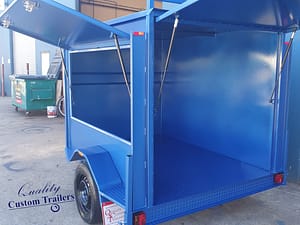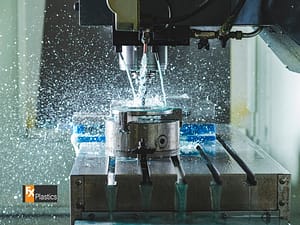Operating a business that relies on perishable products demands dependable commercial fridge. Whether you run a restaurant, a grocery store, or a bar, ensuring that your commercial kitchen equipment runs smoothly is paramount.
In this article, we’ll delve into the common issues faced by business owners, the necessity of routine servicing, and some hands-on maintenance tips that every business owner should be aware of.
Common Issues Faced and Their Solutions
Fluctuating Temperatures: One of the most common issues with commercial fridges is inconsistent temperatures. This could be due to blocked vents, a malfunctioning thermostat, or a failing compressor. Ensure vents aren’t obstructed by products, and if the problem persists, consider seeking professional help.
Leaking Water: A commercial fridge might leak if the defrost drain is blocked or if the drain pan has a crack. Check these components and replace or clear out any blockages.
Loud or Unusual Noises: A commercial ice machine or fridge making strange noises might be indicative of a failing compressor, fan blade issues, or a malfunctioning motor. Address these noises promptly to prevent bigger, potentially costlier problems down the road.
Ice Build-up: Ice accumulation, especially in commercial bar fridges, can reduce efficiency. This could be due to a faulty door gasket or a malfunctioning defrost timer. Regularly check and replace gaskets and ensure timers are functioning correctly.
The Importance of Regular Servicing
Much like other commercial kitchen equipment in Sydney and around the world, commercial fridges need regular servicing. Routine maintenance ensures:
Longevity: Regular servicing extends the lifespan of your commercial chest freezer, ice machines, and fridges.
Efficiency: A well-maintained fridge operates more efficiently, saving on energy costs.
Safety: Properly serviced commercial refrigeration reduces the risk of food spoilage, ensuring food safety standards are maintained.
Cost Saving: Addressing issues before they escalate can save substantial repair or replacement costs.
DIY Maintenance Tips for Business Owners
Clean Coils: Dust and debris can accumulate on the coils, reducing the fridge’s efficiency. Regularly cleaning these coils ensures optimal performance.
Inspect Door Seals: Make sure the fridge door seals tightly. Loose seals let out cold air, making the fridge work harder.
Organize and Don’t Overpack: Allow for air circulation inside the fridge. An overcrowded fridge or commercial ice machines can reduce efficiency.
Positioning: Ensure your fridge is positioned away from heat sources and maintains adequate ventilation.
Regularly Defrost: If your fridge isn’t self-defrosting, make sure to manually defrost it to prevent ice build-up.
If you’re starting a new venture and need a fridge for rent, or perhaps a commercial fridge for rent, remember that understanding the basics of maintenance can save you time, money, and ensure uninterrupted service for your customers.
Deciphering the World of Commercial Fridge
Dive into the intricacies of commercial refrigeration systems, their specialized features, and how they cater to the unique demands of businesses. Uncover what sets them apart from residential units and why they’re pivotal in foodservice industries.
What is considered a commercial fridge?
A commercial fridge is specifically designed for business and commercial use. Unlike regular residential fridges, they are built to meet the demands of a business setting, often having larger storage capacities, more durable materials, higher energy outputs, and features tailored for specific professional needs.
What is a commercial refrigerator used for?
Commercial refrigerators are primarily used in settings like restaurants, cafes, grocery stores, and other foodservice businesses. They store perishable food items, beverages, and ingredients at safe temperatures to ensure freshness, quality, and compliance with health and safety standards. Given their large size, they often have multiple sections or compartments to organize and store large quantities of varied items.
What is the difference between commercial and regular refrigerators?
While both commercial and regular (residential) refrigerators serve the primary purpose of cooling and preserving food, there are notable differences:
- Size and Capacity: Commercial fridges generally offer more storage space and come in a variety of sizes and configurations to suit different business needs.
- Durability: Commercial fridges are built for heavier use, and hence they’re typically made from more robust materials to withstand the wear and tear of a business setting.
- Energy Use: Due to their size and the need to maintain stricter temperature controls, commercial fridges often consume more energy than residential ones.
- Customization: Commercial units can be customized for specific functions – for example, a commercial ice machine or a pastry display fridge.
- Price: Commercial refrigerators are typically more expensive than their residential counterparts due to their specialized features and durability.
Being proactive in maintaining and understanding your commercial refrigeration is not just a good business practice; it’s essential for efficiency, safety, and cost savings. And if you’re ever in doubt, seeking professional help can prevent minor issues from becoming major problems.





